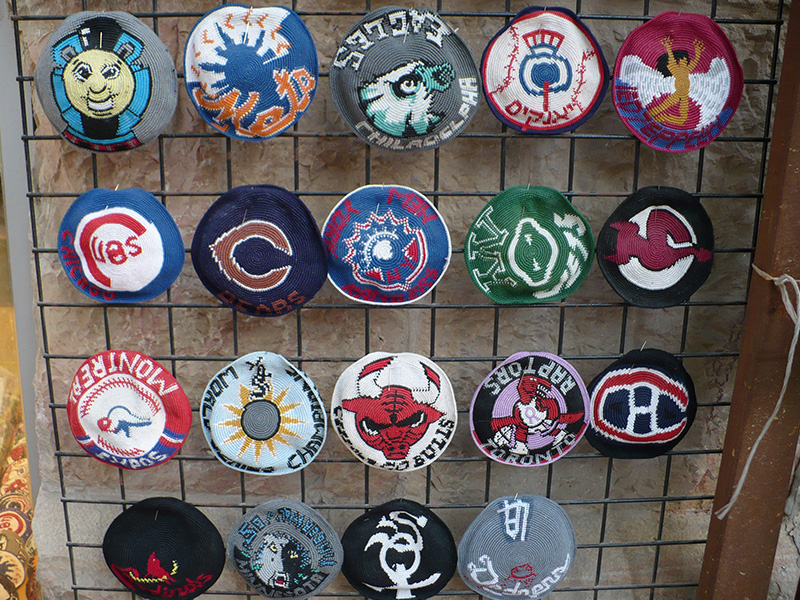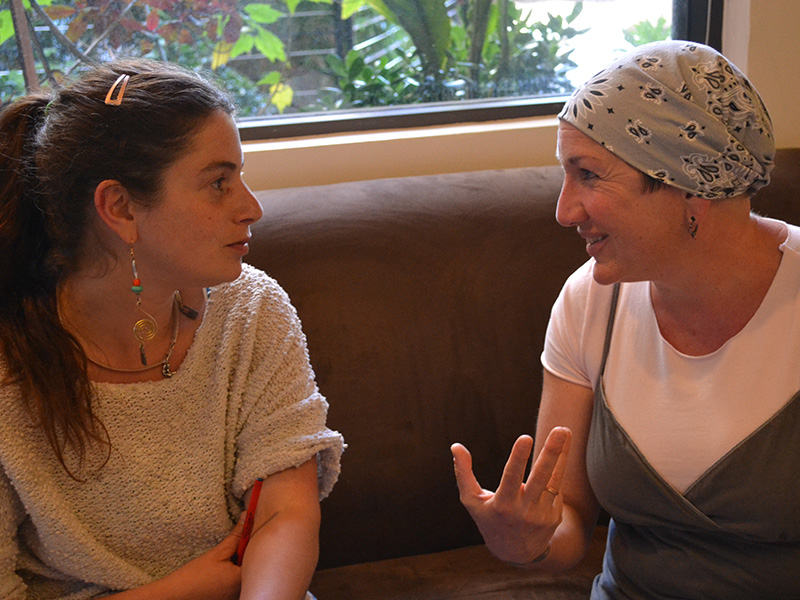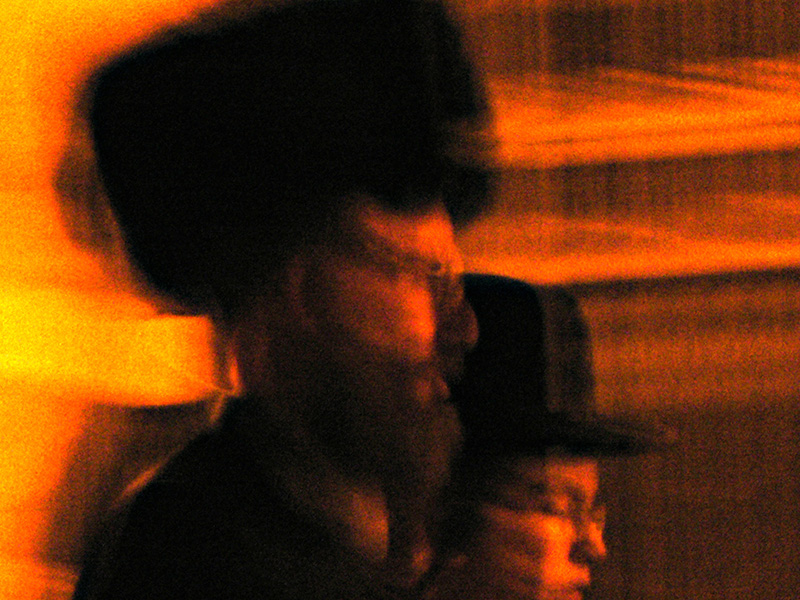Back in 1988, Shimon Fogel attended his first American Israel Public Affairs Committee (AIPAC) conference in Washington, D.C.
An observant Jew himself, he noticed at the time that “the number of participants who were ostensibly Orthodox could be counted on one hand.”
In late March, at the most recent AIPAC gathering, which brought together around 20,000 pro-Israel advocates, Fogel noticed a huge change: perhaps one-third of the participants were “kipot-wearing men, or women wearing their own head coverings.”
“I think it’s a good index of the extent to which the Orthodox community feels fully engaged,” said Fogel, CEO of the Centre for Israel and Jewish Affairs (CIJA).
According to Jewish Life in Greater Toronto, a 2006 UJA Federation of Greater Toronto report, 14.2 per cent of respondents described themselves as Orthodox, compared to 36.9 per cent who identified as Conservative, 18.7 per cent Reform and 1.7 per cent Reconstructionist.
Only nine per cent described themselves as secular Jews, and 17.2 per cent preferred the designation “Just Jewish.”

The report also found that, “The Jewish community of Toronto has a high level of Orthodox Jews relative to other North American communities.” And chances are that the proportion of Orthodox Jews in Toronto is substantially greater now, over a decade later.
Rabbi Reuven Poupko, a pulpit rabbi in Montreal who also serves as co-chair of CIJA’s Canadian Rabbinic Caucus, predicts that “the explosive birth rates in the haredi community will play the most significant role in the Jewish community.”
READ: STRAIGHT MORAL CONDEMNATION OF ISRAEL ONLY HELPS ITS ENEMIES
If it’s true that the future belongs to those who show up for it, then it may well be that the Jewish community will increasingly reflect the views and agendas of its more Orthodox elements.
How will that impact the community’s position on hot-button issues like gay and transgender rights, same-sex marriage, physician-assisted dying, support for Israel, poverty relief and more?
◊
Bernie Farber has seen first hand the difference in attitudes toward the Toronto Pride Parade between members of the Orthodox and broader communities.
Back in 2010, when he worked at the now defunct Canadian Jewish Congress, there was a debate about whether to back Jewish participation in the parade, as a counterweight to the involvement of Queers Against Israeli Apartheid.
“The idea was to show up at the Pride Parade and extol the virtues of Israel as a safe haven for gays,” Farber said.
While hundreds showed up at the parade, Rabbi Mendel Kaplan, the founder and spiritual leader of Chabad Flamingo in Thornhill, Ont., slammed their participation.
“He stood in direct opposition to this as chillul HaShem (disgracing God’s name), to make common cause with the gay and lesbian community,” recalled Farber.
“That signified the difference between the modern community and the ultra-Orthodox community, where Torah law means everything and modern aspects mean nothing.
“It proves to me a significant difference, placing the ultra-Orthodox on the outside. By their own definition, they can’t be part of a modern country when it seems to violate Torah law.
“They have placed themselves outside the modern boundaries of the Jewish community,” Farber said.
Farber, who now serves as executive director of the Mosaic Institute, said shutting one’s eyes to social problems will only serve to hurt the community. Issues such as depression, suicide and drug dependence all affect Orthodox Jews, as well as others, he said.
Rabbi Kaplan is unapologetic about opposing Jewish participation in the Pride Parade.

Jews who believe in Torah values – and that includes not just Orthodox Jews – “cannot accept part of the Torah and not another,” he said.
“The Torah is true, it is not negotiable,” he said, and a Jew who accepts that its values are eternal “will be disappointed when Jewish organizations adopt positions antithetical to the Torah.”
Daniel Held, executive director of The Julia and Henry Koschitzky Centre for Jewish Education, which is part of UJA Federation, said the latter reflects “the full spectrum of the community.”
On the education front alone, representatives from the Bais Yaakov Orthodox schools sit together with people from liberal schools like Leo Baeck and Bialik at a federation-sponsored round table, four to six times a year.
There, they share information on enrolment, demography, security and other issues. Ultra-Orthodox schools, Held concedes, do not take part in that programming, or receive federation funding.
READ: HOW CHRONIC PAIN AND QUEERNESS TRANSFORMED MY JEWISH PRACTICE
“Our community is incredibly diverse and it comes together on issues like the sustainability of Jewish education, tackling Jewish poverty, advocating on behalf of Israel. Those are issues where we stand united and can bring together the full strength of our community,” he said.
CIJA is also a big tent that welcomes Jews from all segments of the community, Fogel said. Many of the items on CIJA’s agenda have resonance throughout the community.
“Even the ultra-Orthodox community, which to some extent is self-isolating from the broader Jewish community, benefits from CIJA’s advocacy on education, immigration and those things that relate to the poverty agenda,” Fogel said. “There is outreach to them. There is work that we do on their behalf.”
Overall, Fogel believes that Orthodox Jews “fit in everywhere. They are fully integrated into the community.”
There are, of course, areas of disagreement within the community on social issues, on which CIJA must tread carefully.
When it comes to gay rights, CIJA doesn’t take a position on any particular lifestyle choice. “We engage on the generic issue of discrimination and safety,” Fogel said.
CIJA supported extending the Criminal Code hate crimes provisions to include transgendered people, seeing it as an issue of “protection,” Fogel said.
There was disagreement in the community over physician-assisted death, and CIJA staked out what it saw as a consensus position. The organization supported increased palliative care and protection for doctors who refused to participate in the program, or who declined to refer a patient to a doctor who would participate.
“We work towards consensus on all these things,” Fogel said.
◊
Eli Rubenstein grew up in a “black hat” ultra-Orthodox community, but now serves as spiritual leader of Congregation Habonim, a liberal, egalitarian synagogue.
“There are many different shades of Orthodoxy. Modern Orthodoxy is much more open to interacting with the rest of the world. Ultra-Orthodox are less interested,” he said.
There’s an emphasis among the haredi of not wasting time, of doing mitzvot, focusing on the meaning of life and seeing the deeper meaning of everyday life.
“There is a real inner beauty to that life that some do not see,” he said. At the same time, “There is a fear (among the ultra-Orthodox) that if I get to know you, some of my inner beliefs might be challenged.”
Rubenstein, who also serves as national director of March of the Living Canada, long ago decided to be more involved in the world than his ultra-Orthodox relatives. “How can Jews be a light unto the nations if people don’t know us?” he asked.
Rubenstein believes that there is the potential for some movement among modern Orthodox Jews on issues like gay rights, while among the ultra-Orthodox, “there is more difficulty in accepting that.”
READ: ORTHODOX JEWS ARE POORER, BUT THEY LIVE LONGER. HOW COME?
Orthodox Jews, he says, are comfortable with science, which has found that some people are born as homosexuals.
“Once you understand that, how do you deal with that issue?” said Rubenstein. “The Orthodox will struggle with that,” but they can’t ignore it.”
As for the ultra-Orthodox, although he’s many years removed from the community, Rubenstein doesn’t “see anti-gay public sentiments expressed.”
Rabbi Poupko, who describes himself as a “centrist Orthodox,” said there are points of agreement and departure between the religious streams when it comes to certain key issues. There is, for example, broad-based support for Israel on all sides.
“Even members of the haredi community, who are not philo-Zionist, have not done anything to undermine support for Israel,” he said. “Even if they are philosophically opposed to the state, they still cherish the safety and security of the largest Jewish community in the world.”
Gay rights is an area where the Toronto and Montreal communities part ways, he said. In Montreal, “the Jewish community has a presence in pride parades, with nary an objection from the Orthodox community.”

Rabbi Poupko believes that is because there is more unity among Montreal Jews, given their greater sense of solidarity in a province long divided over language and independence issues.
Rabbi Poupko predicts that the haredi community will become numerically more significant and have the internal wherewithal to advocate on their own behalf, without recourse to mainstream community organizations.
Rabbi Asher Vale – director of Toronto’s Vaad Harabonim, the Orthodox council that brings together rabbis from all streams of Orthodox Judaism – said Orthodox Jews now participate extensively in all aspects of community life, including community organizations, like CIJA and the federations, while also supporting organizations within their own community, such as day schools, Bikur Cholim and Tomchei Shabbos.
Rabbi Vale did acknowledge that there are areas of disagreement, such as whether Jewish community centres should open on Shabbat, and on the issue of gay rights. “But there’s so much that we share,” he said.
Rabbi Vale points to his personal experience in his neighbourhood, in which a number of Jewish families spanning different streams of Judaism, live.
“The differences are there, but that doesn’t mean you can’t like, respect or love your neighbour,” he said.
Nevertheless, he agrees there are situations where divergence can occur, like not being able to eat together because of different standards of kashrut, or when an Orthodox Jew won’t attend a simchah in a non-Orthodox venue, or when an Orthodox woman won’t shake hands with a man.
Devorah Jonas is an Orthodox woman who declined to shake this reporter’s hand. For Orthodox women, it’s a matter of following longstanding rules governing contact between the sexes.
Some of her Orthodox friends will shake others’ hands, “to avoid embarrassing someone else,” she said. She’s found that people are respectful of her practice, regardless of faith, and “occasionally, non-Jews are more accepting of that than Jews.”
The divide continues when asked whether she would attend a friend’s bar or bat mitzvah celebration if it was to take place in a non-Orthodox synagogue.
That’s problematic, she acknowledged. She said that she’d attend the luncheon in the dining hall, but wouldn’t enter the sanctuary.
Jonas, who is a divorce coach and family mediator, said she found a shortage of resources geared toward Orthodox women like herself, when she went through her own divorce. For people in the Orthodox community, “religious needs are important,” she said.
But couldn’t similar mediation be available in the wider community, even in the mainstream Jewish community?
Phrasing her response diplomatically, Jonas said that people like her “appreciate the need for cultural sensitivity.”
She believes that in regard to issues such as domestic violence, divorce, separation and mental health, Orthodox Jews feel apprehensive that they “may be judged, if they’re living with these circumstances.”
◊
David Nussbaum considers himself an observant Jew. Around 35 years ago, he served as president of the Association of Orthodox Jewish Scientists of Toronto.
He said that it’s a myth that Orthodox Jews shun science, and that many accomplished scientists are also Talmudic scholars, contrary to a prevalent belief that religion and science don’t mix.
Yet he disputed the suggestion that Orthodox Jews should adopt modern sensibilities and “not cling to old values.”
That is a common theme in Jewish history, but “if we have the values and lifestyles of the contemporary world, why bother being Jewish?” he asked.
Jews who have deviated from Torah values eventually lose their Jewish identity and even adopt the propaganda advanced by Israel’s enemies, he said.
“I think there is a divide. I’m not saying that secular and religious Jews should not get together on a number of issues, when we have common interests,” he said.
For his part, Rubenstein is optimistic that the Jewish community’s future is bright.
“Can we find unity with the diversity and still share a common bond. That’s one of the challenges. I believe we can,” he said.
